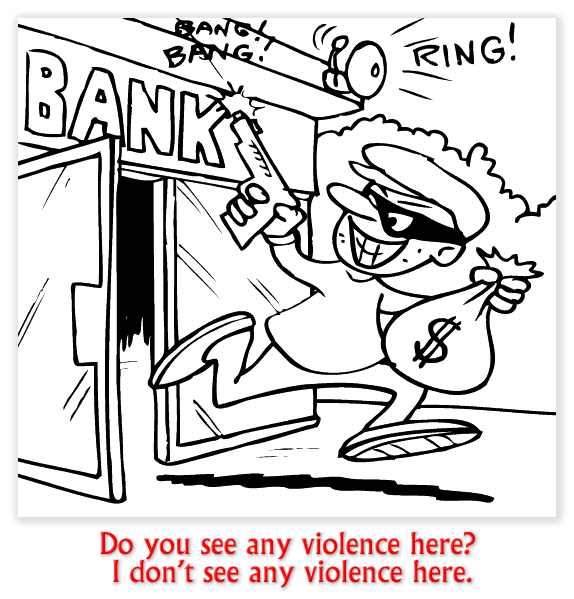We post news and comment on federal criminal justice issues, focused primarily on trial and post-conviction matters, legislative initiatives, and sentencing issues.

HOBBS ACT ROBBERY ONLY SORT OF VIOLENT
In what may to some seem like hair-splitting, the 6th Circuit last week held that a Hobbs Act robbery under 18 USC 1951 is a crime of violence for purposes of 18 USC 924(c), but it is not a crime of violence for purposes of Guidelines 4B1.2 “career offender” status.
 Desmond Camp robbed a dollar store at gunpoint. Because he had a prior 924(c) conviction, he faced a 300-month (25 year) mandatory minimum on the gun charge. But on top of that, Des had two priors that qualified as crimes of violence under Chapter 4B of the Guidelines. With the Hobbs Act robbery in his current case as a third violent offense, Des got 72 month stacked on top of the 300 months.
Desmond Camp robbed a dollar store at gunpoint. Because he had a prior 924(c) conviction, he faced a 300-month (25 year) mandatory minimum on the gun charge. But on top of that, Des had two priors that qualified as crimes of violence under Chapter 4B of the Guidelines. With the Hobbs Act robbery in his current case as a third violent offense, Des got 72 month stacked on top of the 300 months.
Last week, the 6th Circuit upheld the 924(c) conviction, joining every other circuit in America in holding that a Hobbs Act robbery was a crime of violence under that statute. However, the appeals court ruled, the Guidelines “career offender” section is different. The Circuit said that “an offense is a crime of violence under that clause if it has as an element the use, attempted use, or threatened use of physical force against the person of another. The plain text of the Hobbs Act criminalizes robbery accomplished by using or threatening force against “person or property.” Though this may be sufficient under 924(c), it is not under the Guidelines. Given their definitional differences, “[t]here is nothing incongruous about holding that Hobbs Act robbery is a crime of violence for purposes of 18 USC 924(c), which includes force against a person or property, but not for purposes of USSG 4B1.2(a)(1), which is limited to force against a person.” Therefore, Hobbs Act robbery is not a crime of violence under the Guidelines’ use-of-force clause.
 So Hobbs Act robbery is only kind of violent.
So Hobbs Act robbery is only kind of violent.
Robbery is listed in the Guidelines as a crime that by definition is a crime of violence. But that, the Circuit said, does not matter. Recognizing that “most modern statutes limit robbery to force or threats against a person,” the court held that because Hobbs Act robbery encompassed “mere threats to property,” it was not categorically ‘robbery’ as used in the Guideline.
Not that all of this helps Desmond that much. On resentencing, he will still get somewhere between 300 and 372 months.
United States v. Camp, Case No. 17-1879 (6th Cir. Sept. 7, 2018)
– Thomas L. Root

